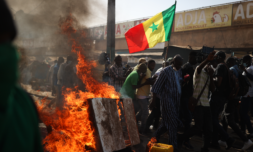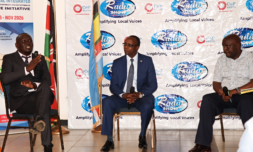The Haitian government declared a 72-hour state of emergency after armed gangs stormed two major prisons in the country last Sunday. Close to 4,000 inmates have reportedly escaped.
This past weekend, gang members made a daring move by breaking into the nation’s two biggest prisons, spiralling insecurity in the country.
According to the UN, gang violence in Haiti has escalated since the assassination of president Jovenel Moïse in 2021. Close to 1,000 innocent Haitians were killed or kidnapped in the month of January 2024 and over 300,000 have been displaced.
The ‘prison break’ marked a dark chapter in Haiti’s history, as gang members attempted to capture the capital’s main airport in a move to oust the Prime Minister Ariel Henry from power.
The Prime Minister, who was not in the country during the clashes, travelled to Kenya to sign a deal which green lit a contingent of 1,000 Kenyan officers to assist in fighting the gangs.
The officers deployment is facing constitutional challenges in the Kenyan High Court, however, as human rights groups take quarrel with the intervention.




















